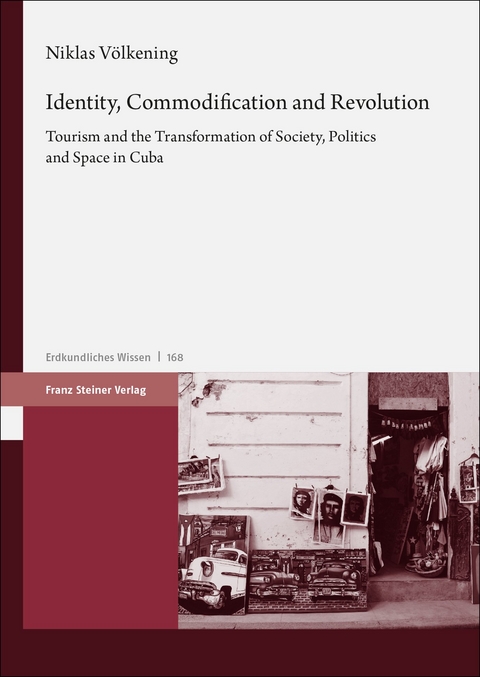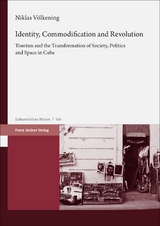Identity, Commodification and Revolution
Tourism and the Transformation of Society, Politics and Space in Cuba
Seiten
2024
Franz Steiner Verlag
978-3-515-13586-3 (ISBN)
Franz Steiner Verlag
978-3-515-13586-3 (ISBN)
This book explores how the commodification of the Cuban Revolution affects Cuban identities. Contrary to prevailing beliefs, commodification does not inevitably lead to identity loss or alienation. Instead, it serves as a potent heuristic tool for comprehending social and political transformation.
The Cuban Revolution, a powerful force shaping Cuban identities, presents an intriguing paradox. Surprisingly, tourism-driven commodification of the Revolution does not induce alienation, challenging prevailing assumptions. Rather, the waning identification with the Cuban Revolution stems from a complex interplay of perceived dysfunctionality, unmet aspirations, and economic inadequacies.
Commodification in tourism is thus merely a symptom of alienation, revealing the discontent of marginalized individuals who criticize and disengage from the Revolution. This indicates transforming identities and socioeconomic realities, which are not caused by commodification, but are exposed through its examination. The book further explores the current state of the Cuban Revolution, where criticism and calls for market reforms challenge the state's authority and imply a decline in its power.
The Cuban Revolution, a powerful force shaping Cuban identities, presents an intriguing paradox. Surprisingly, tourism-driven commodification of the Revolution does not induce alienation, challenging prevailing assumptions. Rather, the waning identification with the Cuban Revolution stems from a complex interplay of perceived dysfunctionality, unmet aspirations, and economic inadequacies.
Commodification in tourism is thus merely a symptom of alienation, revealing the discontent of marginalized individuals who criticize and disengage from the Revolution. This indicates transforming identities and socioeconomic realities, which are not caused by commodification, but are exposed through its examination. The book further explores the current state of the Cuban Revolution, where criticism and calls for market reforms challenge the state's authority and imply a decline in its power.
Niklas Völkening is a human geographer and transformation researcher and studied geography at the University of Augsburg. He has been a research assistant there since 2016. His research focuses on geographical transformation and development research, human-environment research, and Political Ecology.
| Erscheinungsdatum | 11.02.2024 |
|---|---|
| Reihe/Serie | Erdkundliches Wissen |
| Sprache | englisch |
| Maße | 170 x 240 mm |
| Gewicht | 852 g |
| Themenwelt | Naturwissenschaften ► Geowissenschaften ► Geografie / Kartografie |
| Schlagworte | commodification • Cuba • Cuban Revolution • Cultural and Social Impacts of Tourism • Grounded Theory • Human geography • Identity • Identity Resources • poststructuralism • production of space • Qualitative research • Tourism • Transformation |
| ISBN-10 | 3-515-13586-3 / 3515135863 |
| ISBN-13 | 978-3-515-13586-3 / 9783515135863 |
| Zustand | Neuware |
| Haben Sie eine Frage zum Produkt? |
Mehr entdecken
aus dem Bereich
aus dem Bereich
über eine faszinierende Welt zwischen Wasser und Land und warum sie …
Buch | Hardcover (2023)
dtv (Verlag)
24,00 €
Buch | Hardcover (2024)
Schweizerbart'sche, E. (Verlag)
24,00 €
Eine Einführung in die spezielle Mineralogie, Petrologie und …
Buch | Hardcover (2022)
Springer Spektrum (Verlag)
59,99 €




